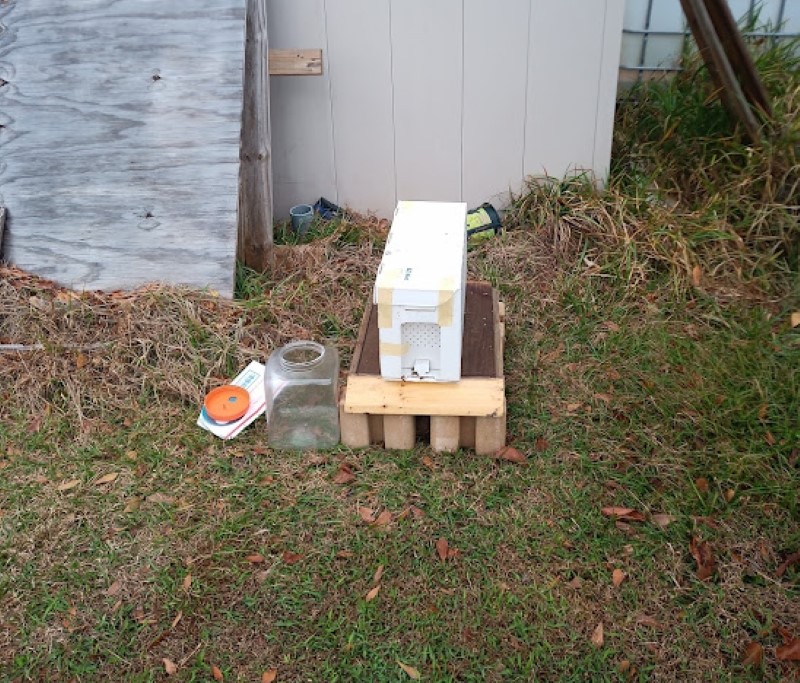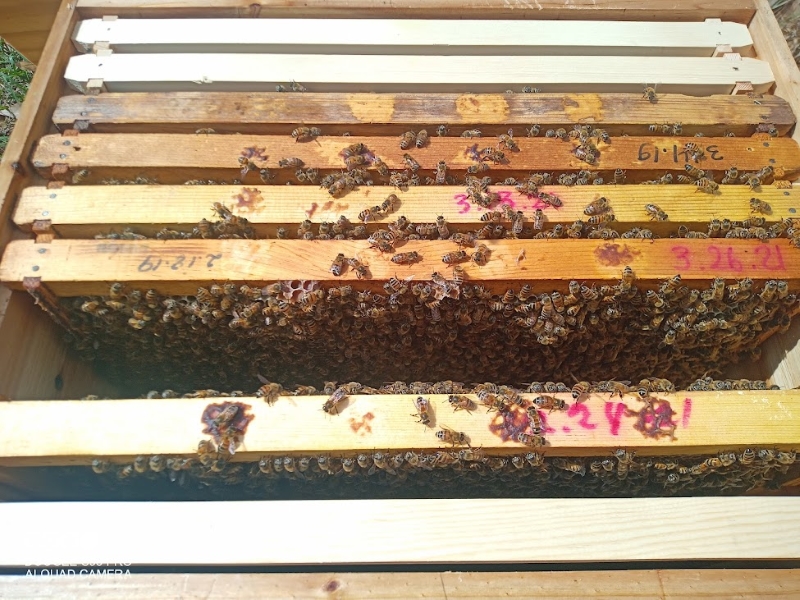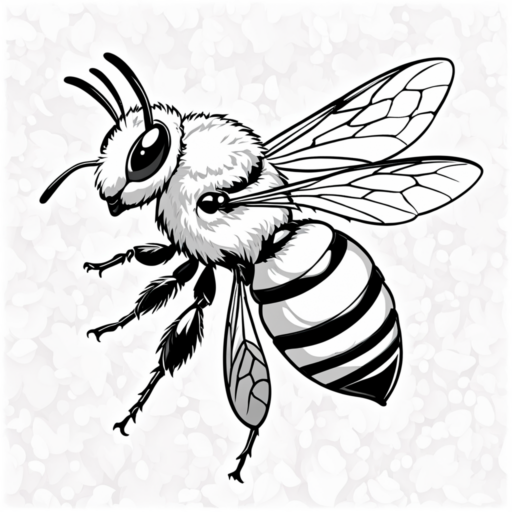How to Know If You’re Ready to Become a Beekeeper: Key Questions and Essential Knowledge

If you’re interested in becoming a beekeeper, you’re probably filled with excitement and curiosity—but you may also be wondering: How do I know if I have enough knowledge to start? Before purchasing bees and diving into this rewarding, yet challenging, hobby, it’s important to assess whether you have the essential knowledge and skills needed to ensure success.
Here’s a guide to help you evaluate if you’re ready to start beekeeping, the topics you should master, and how to increase your chances of thriving in this fascinating endeavor.
1. Do You Have the Basics Down?
To be a successful beekeeper, it’s essential to understand the fundamentals of bee biology and the basics of hive management. Here are some key areas you should be familiar with:
Bee Anatomy & Colony Structure
Understand the roles of the queen, workers, and drones, and how each part of the hive operates. Recognizing the brood nest, honey storage, and pollen frames is crucial when inspecting your bees.
How to Inspect a Hive
Be able to safely open the hive and inspect it. Look for signs of a healthy colony such as brood patterns, honey stores, and the queen’s presence. Regular inspections every 7-10 days are vital to maintaining hive health.
When I first began, I spent months reading and researching the basics of bee biology and hive management. I learned everything I could about the anatomy of bees and how a hive should function.
Even with all that knowledge, I still felt unsure when it came to hands-on practice. It wasn’t until I had my first nuc (nucleus colony) in the spring that I truly began applying what I had learned.
2. Swarm Prevention & Control
Swarming is a natural behavior for bees, but it’s a challenge for beekeepers. As a beginner, you should learn the basic principles of swarm prevention and control, including:
Why Bees Swarm
Understand the triggers—usually overcrowding or the queen’s age.
Methods for Preventing and Managing Swarms
Be aware of techniques like splitting hives or adding supers to reduce the chances of swarming. Being proactive can save you from losing a colony or dealing with aggressive bee behavior.
In my first year, I quickly realized how important swarm control was. My colony grew rapidly, and I had to split it before swarming became an issue.
Thanks to the research I had done, I knew exactly what to do. By the end of the year, I had successfully split my one nuc into three thriving colonies. It wasn’t just about learning swarm control—it was about watching it in action and knowing when to take the right steps.
3. Pests & Diseases Management
Beekeeping comes with its challenges, particularly regarding pests and diseases. Learning how to identify and treat these issues is crucial:
Recognizing Common Bee Pests
Mites, ants, and wax moths are common nuisances. Being able to identify them early can help prevent infestations.
Treatment Options
Familiarize yourself with current methods for pest management. Be cautious of outdated information, as best practices are constantly evolving. Stay updated on the most effective treatments.
As a self-taught beekeeper, I didn’t have the luxury of a mentor in my first year. Instead, I learned to monitor for pests and diseases by reading extensively and joining online forums.
When varroa mites became a problem, I had to act quickly, treating the colony before it could cause significant damage. While it was a setback, it taught me the importance of regular monitoring and pest management.
4. Understanding Hive Gear and Tools
Before you even bring bees into your life, you’ll need to ensure you have the proper equipment. Invest in quality hive tools and protective gear such as:
Bee Suits & Gloves
Protect yourself from stings. Be sure to wear long sleeves and sturdy gloves.
Hive Components
Learn about the different types of hives (Langstroth, Top Bar, Warre), frames, supers, and foundation. Understanding how to assemble and manage your hive is essential.

When I began, I wasn’t sure what kind of hive to start with. After researching the different types, I opted for a Langstroth hive because of its accessibility and standardization.
I spent time familiarizing myself with every component of the hive, making sure I knew how to properly assemble and manage it. This helped build my confidence before I even introduced my first bees.
5. Are You Prepared for the Commitment?
Beekeeping requires consistent attention, especially in the first few years. Ask yourself these questions to gauge your readiness:
Am I Prepared for the Time Commitment?
Bee colonies require regular care and monitoring. Inspections, feeding, and pest management will become part of your routine, especially during the spring and fall.
Am I Comfortable Handling Bees?
Beekeeping involves working with live insects, some of which may become agitated or defensive. Are you comfortable handling bees, even when they become aggressive?
The time commitment is something I didn’t fully understand until I started managing my first colony. There were days when I felt overwhelmed, especially with inspections during hot weather and dealing with the occasional spicy bee.
But with each passing month, I grew more confident and comfortable handling the bees, and I learned to appreciate the quiet, peaceful moments spent with my hives.
6. Have You Found a Mentor or Support System?
One of the best ways to learn is by doing—but doing so with guidance from experienced beekeepers can make all the difference. Consider these options:
Find a Mentor
A local mentor can offer invaluable advice, share their experiences, and provide hands-on guidance. This could be someone from your local beekeeping club, or even a neighbor who keeps bees.
Join a Beekeeping Club
Local beekeeping clubs often offer support, educational workshops, and mentorship. Connecting with fellow beekeepers gives you access to a wealth of knowledge and practical tips specific to your region’s climate.
In the beginning, I didn’t have a mentor, but I made up for it by diving into books and online forums. However, the real breakthrough came when I connected with other beekeepers in local communities. Through sharing experiences, I learned faster and found more confidence in my abilities.
7. Have You Taken Any Classes or Completed Training?
While reading books and watching videos can give you a solid foundation, hands-on experience is irreplaceable. You may want to:
Attend Beekeeping Courses
Many local associations and universities offer beginner classes that cover everything from hive management to pest control.
Watch Localized Videos
Beekeeping practices can vary based on your climate, so look for videos or resources specific to your area.
I didn’t take formal classes at first, but my extensive research through books and online sources helped me gain enough understanding to start. Eventually, I attended some local workshops, which were incredibly valuable in deepening my practical knowledge.
8. Can You Handle Setbacks?
Beekeeping is a learning process, and things won’t always go smoothly. Many experienced beekeepers have had colonies die, faced pests, or dealt with hive failures. Your ability to bounce back from setbacks and learn from mistakes is an important part of becoming a successful beekeeper.
The first setback I encountered was losing a colony to varroa mites. It was disheartening, but it was also a crucial learning experience. I learned to carefully monitor my colonies for signs of mites and to act quickly if I saw any issues. Each failure became a lesson that made me a better beekeeper.
9. Are You Ready for the Financial Commitment?
Beekeeping isn’t a cheap hobby. Start-up costs can include purchasing bees (nucs or packages), hive boxes, tools, protective gear, and ongoing supplies like feed and medications. While beekeeping can be profitable, especially with honey production, it’s important to know that it’s not an immediate return on investment.
When I started, I had to make an initial investment in equipment and bees. But the satisfaction of seeing my colonies grow made it all worthwhile. I also found that the bees helped pollinate my garden, adding a layer of benefit to my investment.
My Journey Into Beekeeping: How I Got Started
To give you a real-life perspective, let me share my personal journey into beekeeping. When I first thought about becoming a beekeeper, I was both excited and nervous. I had a deep fascination with bees, but I wasn’t sure if I had enough knowledge to jump in. I spent months reading books, watching YouTube videos, and joining online forums to learn as much as I could. Still, I wasn’t entirely confident.
“I knew the basics—what a hive looked like, how bees behaved, and the necessary equipment—but I still had so many questions,” I thought to myself.
What I realized was that while all that information was helpful, I needed more than just theory. I needed hands-on experience and someone to guide me through my first year.
So, I ordered my first nuc in the spring and immediately started applying what I had learned. I wasn’t sure how successful it would be, but by the end of the year, I had split my one colony into three. It was a true testament to how self-taught research, paired with practical experience, could lead to success.
Do Not Be Discouraged
Beekeeping is a rewarding and fulfilling hobby, but it requires both knowledge and dedication. If you’ve mastered the basics, found support, and are ready for the challenges, you’re on the right path. Don’t be afraid to make mistakes—they’re part of the learning process, and as many beekeepers will tell you, they lead to greater success in the long run.
Happy beekeeping!
